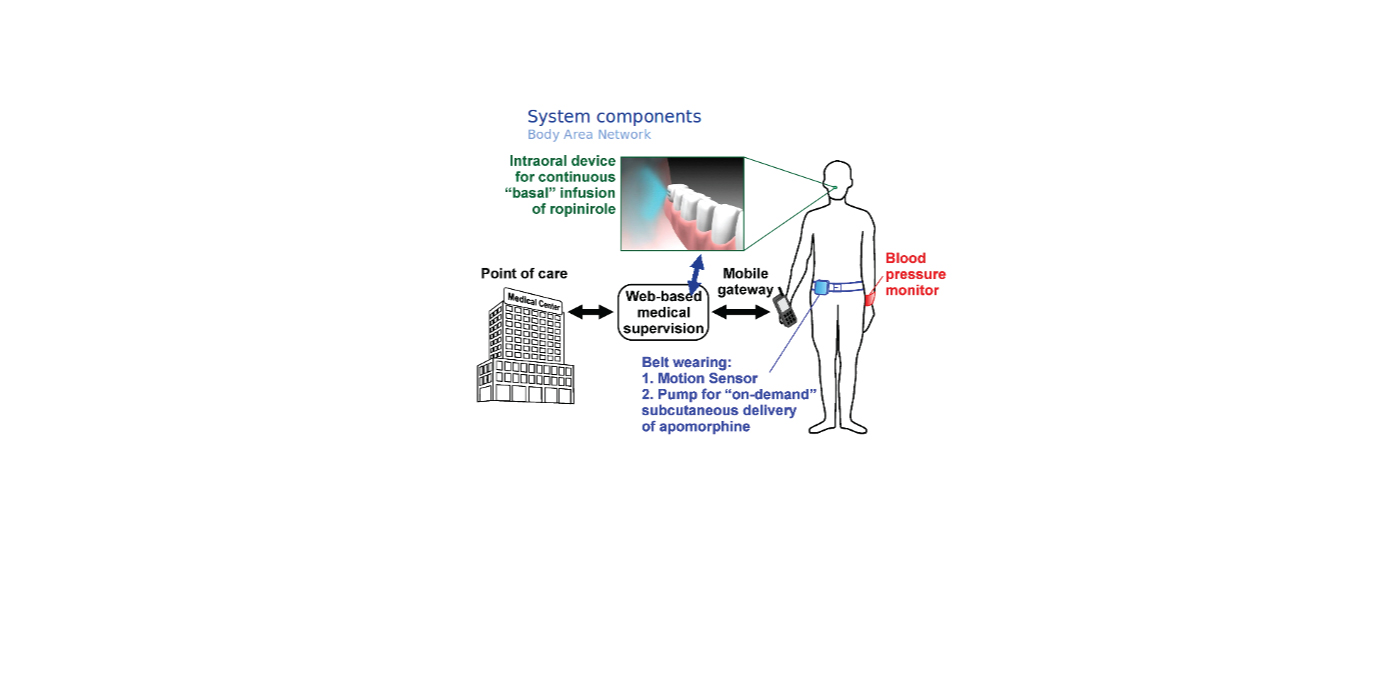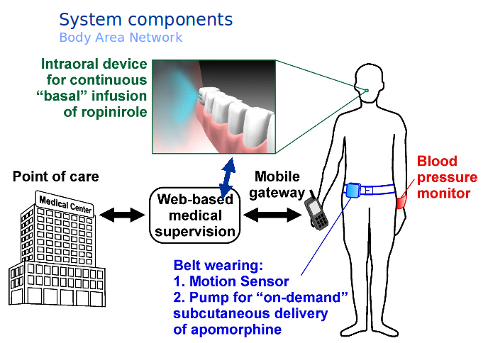HELP
The HELP Project consortium is designing a Health Monitoring System specifically targeted for the needs of Parkinson Disease (PD) patients. Without treatment, PD progresses over 5–10 years to a rigid, a kinetic state in which patients are incapable of caring for themselves. Death frequently results from complications of immobility, including aspiration pneumonia or pulmonary embolism. The availability of effective pharmacological treatment has altered radically the prognosis of PD; in most cases, good functional mobility can be maintained for many years, and the life expectancy increased substantially. Primarily, therapies are aimed at minimizing symptoms and maximizing function and quality of life.

However, intensive supportive care is needed, demanding the allocation of enormous resources besides the strictly medical ones. This suggests an alternative way to face PD, not only in managing patients at an individual level, but also in optimizing cost effectiveness of health care plans. The HELP System (“Home-based Empowered Living for Parkinson’s disease patients” proposes solutions to improve quality of life of PD patients based on:
- A Body Sensor and Actuator Network (BS&AN) made up of portable/wearable and home devices to monitor health parameters (e.g. blood pressure) and body activity (e.g. to detect gait, absence of movement), and to release controlled quantity of drugs in an automatic fashion;
- A remote Point-of-Care unit to supervise the patients under clinical specialists control.



